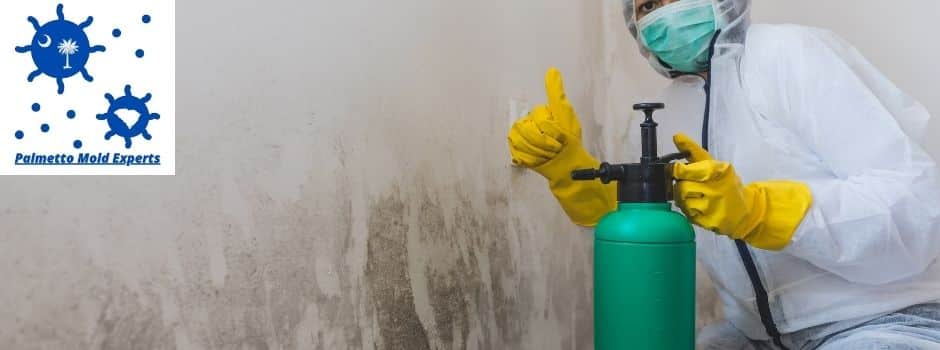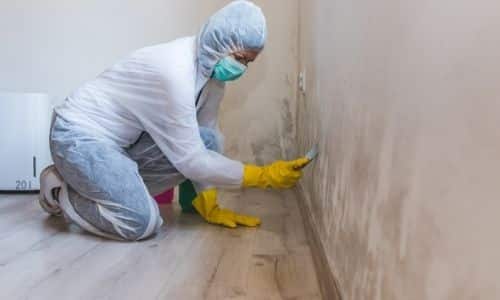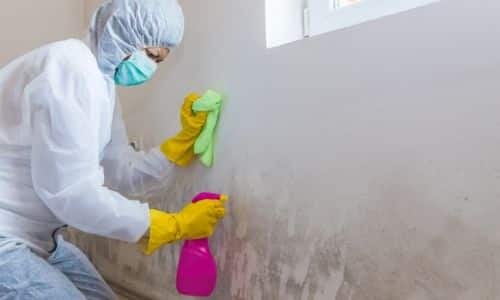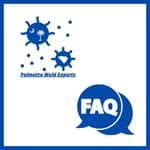
You Need The Best Mold Remediation Experts Near You In South Carolina
- Mold in your home can cause serious health problems.
- Mold is everywhere, from inside your walls to under your sink. But if you find mold in your home, you don't have to live with it.
- Mold can make your home unhealthy and uncomfortable. Get rid of it by calling our experts today.
- Call us or use our contact form right away and get started cleaning your home and remediating mold today.
Why do I need to remediate mold from my home in South Carolina?
Mold remediation is necessary for health reasons. Mold spores can cause allergic reactions, respiratory issues, and other illnesses. If you notice any signs of mold growth, such as musty odors, discoloration, or visible mold, contact a professional remediation expert immediately.
Is mold remediation expensive?
Mold remediation from your South Carolina home is usually inexpensive, however, it depends on how much damage has been done. If you notice water stains, mildew, or discoloration, then you should call a professional immediately. Waiting on a mold problem only increases the cost of remediation.
How long does mold remediation take?
Mold remediation takes about 2 days for small areas, and up to 4 weeks for large areas. The longer the mold stays, the harder it is to remediate. If you notice any signs of mold growth, call a professional immediately.
Does mold damage my home?
Mold damages homes in South Carolina when it grows on surfaces such as walls, ceilings, and floors. The spores from the mold can cause allergic reactions in some people. If you suspect that you have mold in your home, contact a professional who can remediate the mold safely and effectively.
Is it a good idea to remediate mold myself?
Remediating mold yourself is dangerous because you could be exposed to toxic chemicals which may cause serious health issues. The best way to remediate mold is to hire a professional who has experience remediating mold from homes.
Mold Remediation: Mold remediation is the removal of mold from a structure or area that has been contaminated by mold. This can be done using various methods including cleaning, removing the source of moisture, and applying antimicrobial treatments.
What types of mold are common in a South Carolina home or business?
Common types of molds include black mold, white mold, and gray mold. The best way to prevent these types of molds from growing is to keep humidity levels down and clean up any water leaks immediately. If you suspect you have a problem with mold, contact a professional who specializes in mold remediation.
Black Mold: Based on current research, black mold exposure is no more dangerous than any other type of mold exposure. It is impossible to avoid exposure to mold — the spores are almost everywhere around us. In high amounts or in people with allergies, exposure to any mold may cause allergy symptoms.
White Mold: White mold is a powdery fungus made up of different fungal species that can appear white, green, or grey, depending on the type of surface it has infected. Like most molds, white mold thrives in areas with high moisture like showers, crawl spaces, basements, and leaky walls.
Why hire a professional mold remediation company?
- Mold Remediation is an EPA-Registered Service.
- Mold Remediation Services are required by law in most states.
- Mold Remediation Companies are required to be licensed and insured.
- Mold Remediation Company's must meet all state and local building codes.
- Mold Remediation companies are trained to remove mold from your home or business.
- Mold Remediation services are performed by Certified Professionals.
- Mold Remediation can be done at any time of year.
- Mold Remediation will help prevent future problems with your property.
Mold Remediation in South Carolina
While there are no regulations for mold remediation in South Carolina, state lawmakers are taking a close look at the issue.
Although mold is typically not dangerous to humans, it can damage a home's structure and make it uninhabitable. If you don't get rid of it quickly enough, your insurance company may deny your claim if you didn't take action when you first noticed the problem. Also, mold remediation is time consuming and can even result in demolition of the house, which will cost you a lot of money.
In order to get rid of mold, you must remove it from the source of the problem. Using a HEPA filter vacuum and wet cleaning with a disinfectant are effective ways to remove mold and the spores it has gathered. Depending on the nature of the mold, certain surfaces may need to be discarded or sealed. To avoid further contamination, it is best to contact a professional for mold remediation in South Carolina.
Mold is caused by a combination of water and organic materials. The moisture source must be addressed immediately because the moisture from a plumbing leak can cause mold growth. If you're having problems with excess moisture, you should repair any plumbing leaks and floods immediately. Another cause is poor ventilation, which can lead to elevated relative humidity levels. Therefore, remediation efforts begin with addressing the source of moisture. Furthermore, you should always ensure complete drying of bathroom surfaces, such as the bathroom.
Proper mold remediation can help prevent the occurrence of a mold problem in the future. Proper mold removal requires special equipment and knowledge. If you don't have these tools, you can be putting yourself at risk of a serious health hazard. Furthermore, it's not enough to kill the mold with a biocide. The dead mold will cause allergic reactions and should be removed thoroughly. And if it's not possible, the mold remediation expert will be required.
Those whose properties have indoor mold should seek professional remediation to ensure the safety of the residents. The Department of Health and Environmental Control (DHC) may order a homeowner to remediate mold in a residential unit within 30 days, but failure to follow guidelines doesn't excuse a person from cleaning the property. In fact, it's a violation of the law to let mold go unchecked. Therefore, you should hire a professional mold remediation specialist to make sure your property is free of indoor mold.
If you suspect your home has mold, the first step in remediation is to get a mold inspection. This is a great way to identify the species and amount of mold in your home. The process of mold removal in South Carolina requires air quality tests to determine whether the air in your home is clean and clear. Some of these mold tests require air samples and surface samples. Then, the mold remediation company will send the samples to the lab for analysis.


Have a question about mold in South Carolina? Find Answers here with our mold frequently asked questions:
Have a question we haven't answered? Contact us and let us know!
- Can You Live In A House With Mold?
- How to Remove Mold From Inside Walls
- What to Do If You Find Mold in Your Home in South Carolina?
- Indoor Air Quality And Mold Prevention
- Residential Mold Removal Methods
- Does Mold Have To Be Professionally Removed?
- When Is Mold Remediation Required?
- Mold Inspection For Apartments in South Carolina
- Mold Inspection And Testing Tips
- Health Department Mold Inspection in South Carolina
- How Do I Get My House Tested For Mold?
- How Much Does Mold Remediation Cost?
- Can A Homeowner Remediate Mold Yourself?
- Does Mold Remediation Really Work?
- What Is The Difference Between Mold Removal And Mold Remediation?

